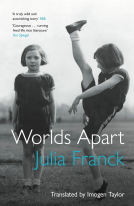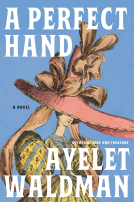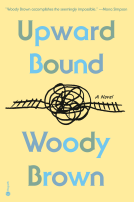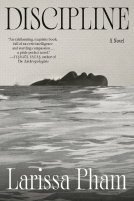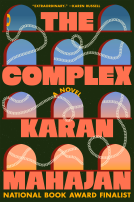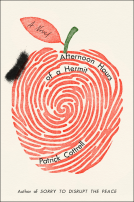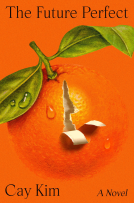
A Woman's Battles and Transformations
by Édouard Louis
This title was previously available on NetGalley and is now archived.
Send NetGalley books directly to your Kindle or Kindle app
1
To read on a Kindle or Kindle app, please add kindle@netgalley.com as an approved email address to receive files in your Amazon account. Click here for step-by-step instructions.
2
Also find your Kindle email address within your Amazon account, and enter it here.
Pub Date Aug 16 2022 | Archive Date Oct 20 2022
Description
Long-listed for the National Book Critics Circle (NBCC) Barrios Book in Translation Prize
A Woman's Battles and Transformations is a portrait of the author’s mother by the acclaimed writer of the international bestsellers The End of Eddy and History of Violence.
Late one night, Édouard Louis got a call from his forty-five-year-old mother: “I did it. I left your father.” Suddenly, she was free.
This is the searing and sympathetic story of one woman’s liberation: of mothers and sons, of history and heartbreak, of politics and power. It reckons with the cruel systems that govern our lives—and with the possibility of escape. Sharp, short, and fine as a needle, it is a necessary addition to the work of Édouard Louis, “one of France’s most widely read and internationally successful novelists” (The New York Times Magazine).
Available Editions
| EDITION | Other Format |
| ISBN | 9780374606749 |
| PRICE | $20.00 (USD) |
| PAGES | 112 |
Average rating from 16 members
Featured Reviews
 Kyle C, Reviewer
Kyle C, Reviewer
In his previous autobiographical novels, especially <i>End of Eddy</i> and <i>Who Killed My Father</i>, Édouard Louis subjected himself to a clear-eyed examination of his working class origins, the experience of growing up gay in public housing, and the social effects of alcoholism and toxic masculinity. In this most recent novella, he revisits these same concerns about class and sexuality but he centers the focus specifically on his relationship with his mother. While the title might be <i>A Woman's Battles and Transformations</i>, he says that it could equally be called "A Son's Struggles Not to Become a Son". It is at times an unforgiving assessment of his mother, a twice-married woman with no education, not even a driver's license, who helplessly becomes the serial victim of domestic abuse. As a teenager he comes to despise her lower-class grammar; when she visits his lycée, he warns her not to pick her nose; he hates her for her subservience. Only when she leaves his father can he celebrate her. Reworking Simone de Beauvoir's famous aphorism ("one is not born a woman, one becomes a woman"), he argues that his mother only became a woman when liberated from her motherhood.
"Show, don't tell" is the reigning rule of contemporary literature. But Édouard Louis' novel remonstrates against this simplistic dictum. His mission is to explain reality rather than just represent it. And so Louis subjects all of life to social critique. During a summer vacation, when he returns from university, he develops appendicitis but his mother refuses to believe he is sick and does not call an ambulance. In her eyes, doctors and hospitals are for the middle-class with money, who spend their free time whining about trivial pains to feel self-important. In his father's eyes, medicine is for women. Louis sees in his parents a lesson about social mobility and class resentment. In his analysis, his mother can only see him as an instrument of class aggression, rather than as a son in need of medical attention.
Édouard Louis' novels are not just sombre memoirs of industrial poverty and lower-class misfortune. His novels advocate for a different way of doing literature, combining narrative and manifesto, plot and polemic, confession and critique. He rejects the idea that literature should not express raw emotions or should hide his political arguments. His memoirs are anti-literary. Writing about his mothers means "to write against literature."
 Reviewer 630346
Reviewer 630346
Oh, Edouard Louis has yet to disappoint. This is yet another heart-felt, wrenching story about family, class, abuse. This time, his focus is the story of his mother, and which probably has the happiest ending of all his efforts combined. Like Ernaux, or Duras, Louis tackles the same subject over and over again, something he acknowledges in the text, but each time he occupies a new lens, one that allows him to render the emotions anew, and always with laser focus. I could read him forever.
Thanks to the publisher for the e-galley.
Readers who liked this book also liked:
Patrick Cottrell
General Fiction (Adult), LGBTQIAP+, Multicultural Interest

